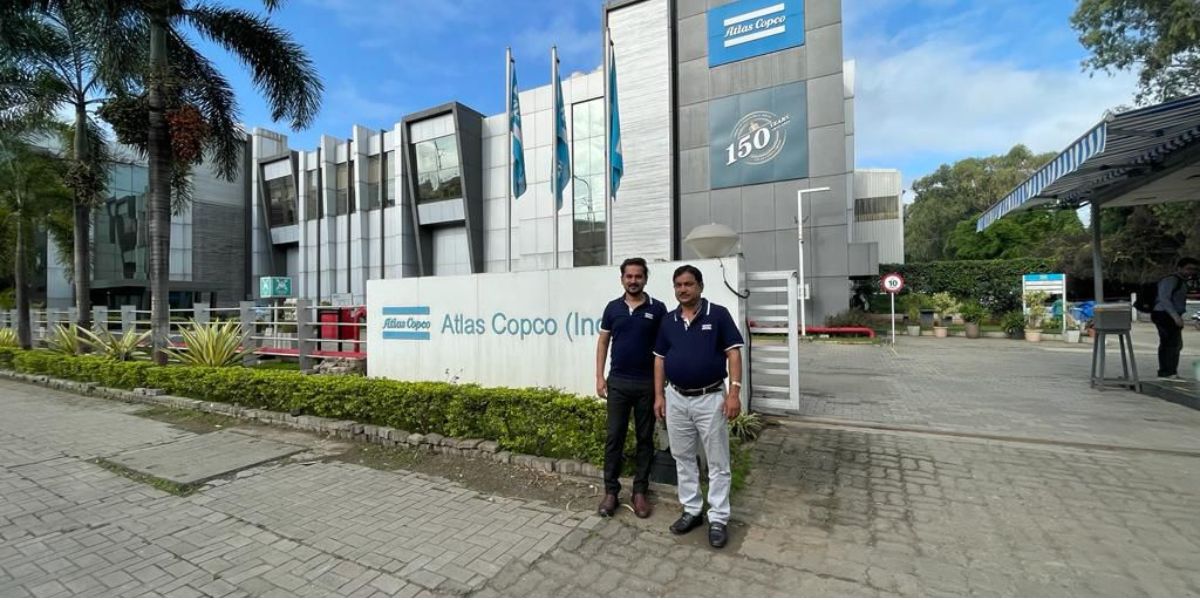Young parents search near and far for the perfect toys and educational accessories for their infants and toddlers.
In India, this search often ends with expensive products from multinational companies or cheap and low-quality products imported from China. And sometimes, it’s both cases at the same time.
China has dominated the global toy manufacturing industry for a long time.
Even international toy manufacturers have relied on China for manufacturing outsourcing. Big companies like Hasbro and the Mattel Group, which makes toys like Barbie, Hot Wheels, and other brands, mass produce about 70% of their goods in China.
India imports 80% of its toys, and 70% is from China alone. Due to India’s bottom-heavy demographic pyramid, more than one-fourth of our people are under the age of 14. India undoubtedly has a sizable toy business, with Chinese toys dominating the majority of it.
With the vision to recapture this market and provide better, sustainable, and more affordable toys, a young couple (and parents themselves) came up with Rocking Potato.
Get To Know the Rocking Potato’s Team
Couples who own and manage businesses jointly are known as “couplepreneurs,” but the idea is not at all new. Priyanka and Swapnil Modsingh are the couplepreneurs behind Rocking Potato.
As Rocking Potato’s CEO, Priyanka oversees all daily activities. She holds a Master’s degree in biotechnology. She’s an experienced lecturer and worked in a few colleges and conducted classes.
Swapnil, who has a strong history in sales and marketing, is in charge of vendor management and sales. He has earned an MBA in Marketing and CRM from Symbiosis, Pune.
Vinay Kanade oversees the firm’s accounting and financial activities and has an ICWA from the Institute of Cost Accountants of India.
Supriya Ranage manages the brand’s legal formalities and holds a company secretary degree from The Institute of Company Secretary Of India. Rocking Potato’s marketing department is overseen by Poonam Verma, who also manages its content writers and designers.
In Search of The Perfect Toys
Priyanka and Swapnil were window shopping for eco-friendly wooden toys for their then-4-year-old daughter since they were aware of all the drawbacks of plastic toys. They found a few decent alternatives after extensive research, but most of them were pricey and imported.
That evening, the pair had a lengthy conversation. They pondered why we are still reliant on other nations for toys when there are so many indigenous artists in India.
They came to know about Channapatna, a city in Karnataka, after doing some research. Handmade wooden toys from Channapatna are well known.
Priyanka and Swapnil saw that Channapatna mostly produces traditional toys. Because of this, it did not appeal to parents in metropolitan areas who had modern tastes. Parents looking for toys that complement their elegant home furnishings turned to expensive imported toys. The two had the notion of launching their own Made-in-India toy company as a result.
Rocking Potato started in 2019 and launched its first product in 2020. It was created to address the requirement of contemporary Indian parents who were looking for open-ended, eco-friendly toys for their infants and toddlers.
Wooden toys are extremely underrepresented in the toy industry, and Priyanka and Swapnil founded Rocking Potato with just 4 SKUs. Today, they have more than 65 SKUs, and many more are in the works.
For children up to age 10, Rocking Potato sells baby activity play gyms, push carts, rockers, teethers, rattles, and crocheted toys. The products can be purchased for as little as Rs 350 or as much as Rs 6,000. Rocking Potato set about with an investment of 5 lakhs INR.
Growing A Brand From Infancy
When Rocking Potato first began, it operated with only 2 people from a 1 BHK apartment. Currently, there are about 8 full-time team members. Classical toys such as lovely rocking horses, unicorns, and horse sticks were among its initial items.
Rocking Potato merges modern and western designs with traditional Indian toys to make the perfect products for the urban Indowestern home.
For children between 0 and 24 months, Rocking Potato presents a selection of toys made of wood and crochet. Its USP is the traditional yet westernized aesthetic of its toys. The toys are produced by regional artisans. Women make up about 80% of the workforce, and the company proudly adopts the Swadeshi philosophy.
Witnessing Growth
Rocking Potato generates up to Rs 25 lakh in annual revenue by selling its goods online. The brand’s annual revenue goal for this year is Rs 50 lakh.
It serves more than 500 people every month and is expanding by 50% annually. Given the recent surge in orders, it currently has a plan to streamline both its production and distribution processes.
The founders are also in discussions with a number of VCs and angel investors for their first round of investment due to their high working capital. Positive reviews from Rocking Potato’s current customer base contribute to the exceptional demand for its items.
The business has outperformed its metrics for capital efficiency, burn rate, and positive gross margin, and undoubtedly it will achieve operational profitability by the end of the fiscal year.
Plans For The Future
To provide plenty of options regarding toys made in India, the company intends to increase its current SKU offerings. It wishes to focus more on role-playing and instructional toys in the future.
Rocking Potato is now in the planning stages of expanding into offline locations and has received BIS certification. The owners will be pleased to launch their Made-in-India toy brand overseas if current negotiations to ship their items internationally go well.
The immediate objective is to expand the brand’s presence throughout India. This is consistent with the brand’s long-term objective of being the market leader in sustainable toys.
“Do your work, don’t be stupid.”
That’s the life motto (wallpaper of their machines and digital screens) for all the team members at Rocking Potato. With their dedication and patience, let’s hope their Indian brand helps India reach an import-independent toy industry.





2 Comments